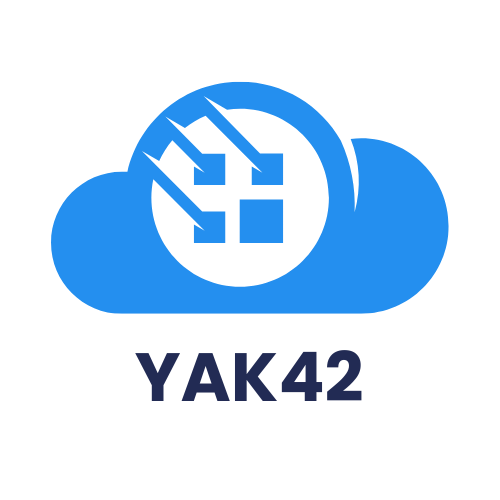Table of Contents
ToggleIn a world where packages can get lost faster than a sock in a dryer, blockchain technology is stepping in to save the day. Imagine a supply chain where every move is tracked and verified, making it as transparent as your favorite reality TV show. With blockchain, businesses can wave goodbye to the headaches of fraud and inefficiency, and say hello to a streamlined process that keeps everyone in the loop.
Overview Of Blockchain Technology
Blockchain technology functions as a decentralized digital ledger. It records transactions across multiple computers, ensuring that they remain secure and unalterable. Each block in the chain contains transaction information, a timestamp, and a cryptographic hash of the previous block. By connecting these blocks, a continuous, transparent record forms.
Transparency plays a crucial role in supply chain management. Blockchain enables stakeholders to access real-time data, significantly improving trust among participants. Companies can track the provenance of products, which helps in verifying authenticity and reducing fraud. Participants can see every movement and change in the supply chain, resulting in enhanced accountability.
Decentralization offers benefits over traditional database systems. No single entity controls the blockchain, minimizing risks associated with centralized data storage. This aspect fosters collaboration among users while ensuring data integrity. When each transaction is verified by multiple parties, the likelihood of errors decreases markedly.
The technology also streamlines processes by automating various tasks. Smart contracts, programmed self-executing agreements, execute actions when predefined conditions are met. This automation speeds up transactions, reducing paperwork and human intervention. Organizations experience efficiency gains, as workflows become more synchronized.
Adoption of blockchain in supply chains continues to grow. Industries, such as food and pharmaceuticals, harness this technology to enhance transparency and traceability. Successful examples include Walmart, which employs blockchain to monitor food products from farm to store, showcasing the practical applications and benefits. Improved visibility throughout the supply chain ensures informed decision-making, ultimately leading to better customer experiences and increased loyalty.
Importance Of Blockchain For Supply Chains
Blockchain plays a crucial role in enhancing supply chain management. It brings significant benefits, including enhanced transparency and improved traceability.
Enhanced Transparency
Blockchain technology offers unparalleled transparency in supply chains. Each transaction gets recorded on a decentralized ledger, enabling stakeholders to view real-time movement of goods. Businesses benefit from this clear visibility, as it reduces the chances of fraud and discrepancies. By facilitating access to shared information, all parties stay informed, fostering stronger trust. Companies like Walmart illustrate the positive outcomes through their blockchain initiatives, as they ensure that customers receive accurate product information. Verified transactions help streamline communication, leading to quicker resolutions of issues that may arise. Consequently, transparency becomes a key driver of efficiency within the entire supply chain network.
Improved Traceability
Improved traceability stands out as another significant advantage of blockchain in supply chains. Each product’s journey gets documented from origin to destination, creating an immutable record. This capability enables quick identification of where products come from and their path through the supply chain. For sectors like food and pharmaceuticals, this traceability is vital for ensuring safety and compliance. Efficient recalls can happen promptly, protecting consumers and preserving brand reputation. The ease of tracking also allows companies to maintain quality control, which often results in higher customer satisfaction. Leveraging blockchain for traceability empowers businesses to adapt to market demands swiftly, boosting competitiveness.
Key Benefits Of Implementing Blockchain In Supply Chains
Implementing blockchain in supply chains presents numerous advantages for businesses. Its features contribute to cost-saving opportunities and improved operational processes that enhance overall performance.
Cost Reduction
Cost reduction emerges as a primary benefit of blockchain technology. By minimizing fraud risks, companies reduce financial losses associated with discrepancies. Streamlined processes decrease overhead expenses tied to manual audits and paperwork. Plus, real-time tracking enables stakeholders to identify issues quickly, allowing for timely corrective measures that can minimize costly delays. For example, automating invoicing processes through smart contracts eliminates the need for intermediaries, streamlining transactions and reducing costs. Altogether, these factors contribute to significant savings across the supply chain.
Increased Efficiency
Increased efficiency is another critical benefit derived from blockchain technology. Processes become faster and more reliable with real-time data available for each transaction. Improved visibility empowers stakeholders to make informed decisions on inventory management and shipping logistics. Automation through smart contracts facilitates faster execution times, reducing the burden of manual processing. Each stakeholder benefits from transparent data sharing, leading to enhanced collaboration and shortened project timelines. This technological integration allows businesses to respond swiftly to market changes, ultimately boosting productivity.
Real-World Applications Of Blockchain For Supply Chains
Blockchain technology showcases significant advantages in supply chain applications. Industries like food and pharmaceuticals benefit from increased transparency and enhanced traceability.
Case Study: Food Safety
Walmart stands out for its innovative use of blockchain in food safety. The company tracks produce from farms to stores, ensuring every step of the journey is recorded on a decentralized ledger. Transparency allows stakeholders to view real-time data regarding food origins and movement. As a result, recalls happen swiftly if contamination occurs. This traceability not only protects consumers but also safeguards Walmart’s brand reputation. Enhanced quality control strengthens customer confidence and satisfaction, reinforcing a commitment to safety.
Case Study: Pharmaceuticals
The pharmaceutical industry also reaps rewards from blockchain implementation. Major companies like Pfizer utilize blockchain to combat counterfeit drugs. By recording every transaction on an immutable ledger, they ensure authenticity throughout the supply chain. Users can verify product origins and movement, boosting trust and accountability among stakeholders. This capability is crucial for regulatory compliance and patient safety. Improved traceability enables quick identification of compromised products, facilitating effective recalls. Ultimately, the integration of blockchain enhances operational efficiency and protects public health.
Challenges And Limitations
Blockchain technology faces several challenges when integrated into supply chains. These challenges can hinder adoption and limit efficiency.
Scalability Issues
Scalability poses a significant hurdle for blockchain in supply chains. Increased transaction volumes often lead to slower processing speeds. Many blockchains cannot handle the high throughput demands of large-scale operations. Additionally, data storage limitations create bottlenecks in information management. High latency situations can result from a growing number of users, affecting real-time access to data. Organizations with numerous transactions per second may experience difficulties implementing blockchain solutions. They may need to explore alternative blockchains or scaling techniques to mitigate these challenges.
Regulatory Concerns
Regulatory concerns further complicate the implementation of blockchain in supply chains. Compliance with existing laws and regulations often proves challenging in decentralized networks. Each industry, such as pharmaceuticals or food, entails specific legal requirements that blockchain must address. Data privacy regulations, like GDPR, impact how companies store and handle information on blockchain platforms. Uncertainty regarding the legal status of smart contracts creates additional barriers for organizations considering adoption. Navigating these regulatory landscapes requires thorough understanding and ongoing collaboration with legal experts. Balancing innovation with compliance will be vital for successful blockchain integration.
Future Trends In Blockchain For Supply Chains
Emerging trends in blockchain technology are reshaping supply chain dynamics. Increased adoption of Internet of Things devices enhances data capture, allowing real-time tracking and verification of goods. Enhanced artificial intelligence integration enables predictive analytics, optimizing supply chain management by identifying inefficiencies.
Further developments in interoperability among different blockchain platforms streamline collaboration. This progress supports seamless data exchange across varied systems, facilitating a more cohesive supply chain network. Another trend involves the implementation of sustainability-focused blockchain solutions, promoting ethical sourcing and reducing environmental impacts.
Advanced security measures ensure data integrity in blockchain networks. Businesses can rely on robust encryption techniques and consensus mechanisms to safeguard sensitive information. Companies, especially in highly regulated sectors, benefit from increased trust through improved transparency.
Greater regulatory clarity around blockchain applications begins to emerge, guiding businesses in compliance with existing laws. This greater clarity helps organizations navigate legal frameworks while adopting innovative technologies. Increased collaboration among industry players fosters a shared understanding of best practices.
Hybrid blockchain models gain traction, providing flexibility in managing public and private data. Such models allow for greater control over sensitive transactions while maintaining transparency where necessary. Cross-border supply chains also benefit from continuous improvements in blockchain technologies and international standards, facilitating smoother global trade.
Future technological advancements may lead to the integration of blockchain with other technologies such as augmented reality. These integrations create immersive experiences for stakeholders, enhancing decision-making processes. Thus, the evolution of blockchain for supply chains promises exponential growth and transformative impacts on global commerce.
Conclusion
The integration of blockchain technology in supply chains is reshaping the landscape of logistics and product management. With its ability to enhance transparency and improve traceability, businesses are finding new ways to build trust with consumers and streamline operations. Real-world applications demonstrate significant benefits across industries, particularly in food and pharmaceuticals.
As organizations navigate challenges like scalability and regulatory compliance, the future of blockchain holds immense promise. Innovations such as IoT integration and AI-driven analytics are set to further optimize supply chain management. Embracing these advancements will not only improve operational efficiency but also foster a more sustainable and competitive marketplace.







